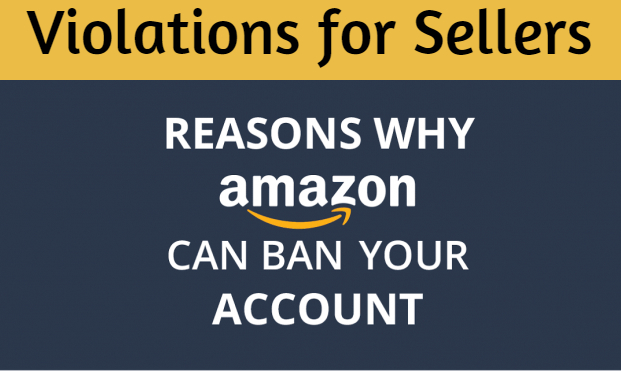
Amazon violations
Amazon is the biggest online shopping store in the world. And it’s no surprise that many sellers use their Amazon business account to run their businesses. But what are Amazon violations, and what do they mean for your Amazon business? In this article, we’ll explore Amazon violations and what they mean for sellers.
What are Amazon violations?
Amazon violations can be classified into four general categories: business practices, customer service, product listings, and competitor activities.
Business practices violations involve things like not following Amazon’s selling guidelines or policies, not responding to customer complaints. And selling counterfeit or unauthorized products. These violations can damage your Amazon business reputation and lead to suspension or termination of your account.
Customer service violations include failing to respond to customer emails or chats, providing poor customer service, and refusing to refund a purchase. This can frustrate customers and lead to negative reviews for your Amazon business.
Product listings violations include listing products in the wrong category. Listing too many products in a single category, and using inappropriate keywords. This can make it difficult for customers to find the products they’re looking for. And it can lead to negative reviews for your Amazon business.
Competitor activities violations include copying other sellers’ listings, bidding on other sellers’ auctions, and making deceptive offers. This can damage your competition and lead to lower sales volumes for your Amazon business.
What are the consequences of Amazon violations?
The consequences of Amazon violations vary depending on the type of violation. Business
What is an Amazon Violation?
An Amazon violation is a term used by Amazon to describe any type of seller misconduct. The most common types of violations include: selling counterfeit or unauthorised items, not fulfilling orders, and not following Amazon’s policies and guidelines. If you receive an Amazon notification stating that your account has been flagged as being in violation. It is important that you take action to correct the issue as soon as possible. Failure to do so may result in further penalties from Amazon, including suspension of your selling privileges and potential termination of your business account.
What are the Different Types of Amazon Violations?
If you sell on Amazon, you are likely familiar with the term “Amazon violations.” Violations can happen in a number of ways, and they can have serious consequences for your business. In this article, we’ll discuss the different types of Amazon violations and what they mean for sellers.
1. Seller account suspension: This is the most common type of Amazon violation. And it typically occurs when sellers sell products that don’t meet Amazon’s policies. For example, if you sell products that aren’t from the United States, your account may be suspended. You may also be suspended if you don’t meet Amazon’s sales quotas or if you don’t follow Amazon’s selling guidelines.
2. Seller feedback suspension: If you receive negative feedback from buyers, your seller account may be suspended for retaliation or poor customer service.
3. Unauthorised product sales: If buyers purchase products from your seller account that you didn’t sell, your account may be suspended.
4. False product claims: If you make false claims about the features or condition of your products, your seller account may be suspended.
5. Insulting other sellers: If you disparage other sellers in your listings or on social media
How to Avoid Amazon Violations?
When selling on Amazon, it is important to keep your business account in good standing. There are a few things you can do to avoid potential violations:
– Make sure your product listing meets Amazon’s guidelines. Make sure all the information on your listing is accurate and up-to-date. Listing errors can lead to violations.
– Follow Amazon’s policies and standards for customer service. Make sure you respond to customer reviews and comments promptly. If a customer has a complaint, take action to correct the issue.
– Keep your inventory accurate and up-to-date. Avoid listing items that you do not have in stock or that are out of date. This can lead to violations of Amazon’s policies on false or misleading listings.
Keep these tips in mind to stay in good standing with Amazon and avoid any violations.
Conclusion
If you are an Amazon seller, it is important to know what violations could lead to the suspension or termination of your account. These are a few things to keep in mind:
-Selling items that infringe on copyrights or trademarks can result in consequences such as being banned from selling on Amazon. Its having your account suspended, and even getting sued.
-Violating specific shipping policies, such as not using proper packaging for fragile goods, can also get you into trouble.
-Failing to comply with AMAZON’s terms of service can result in a range of punishments including suspensions or terminations of your account.







